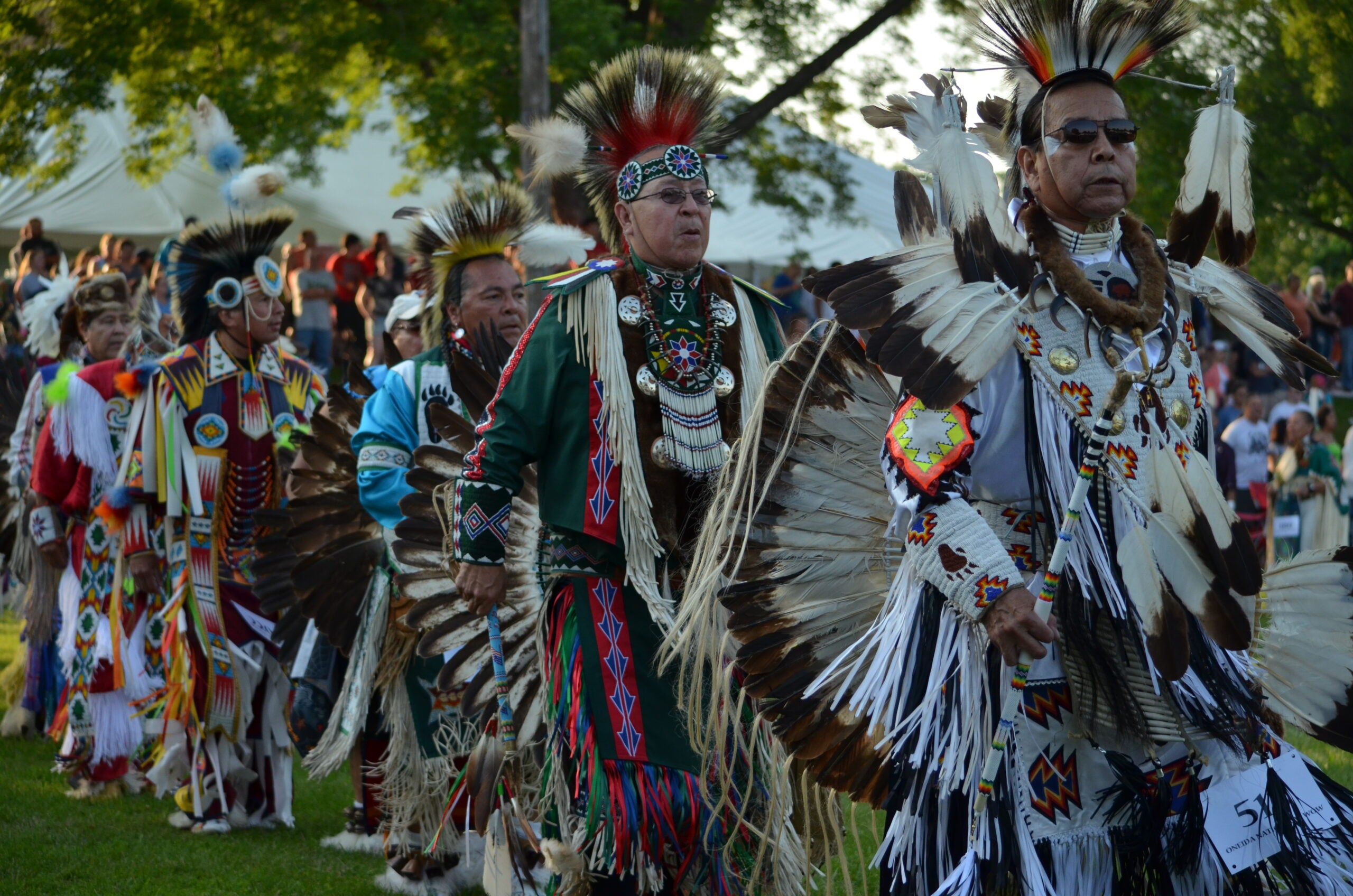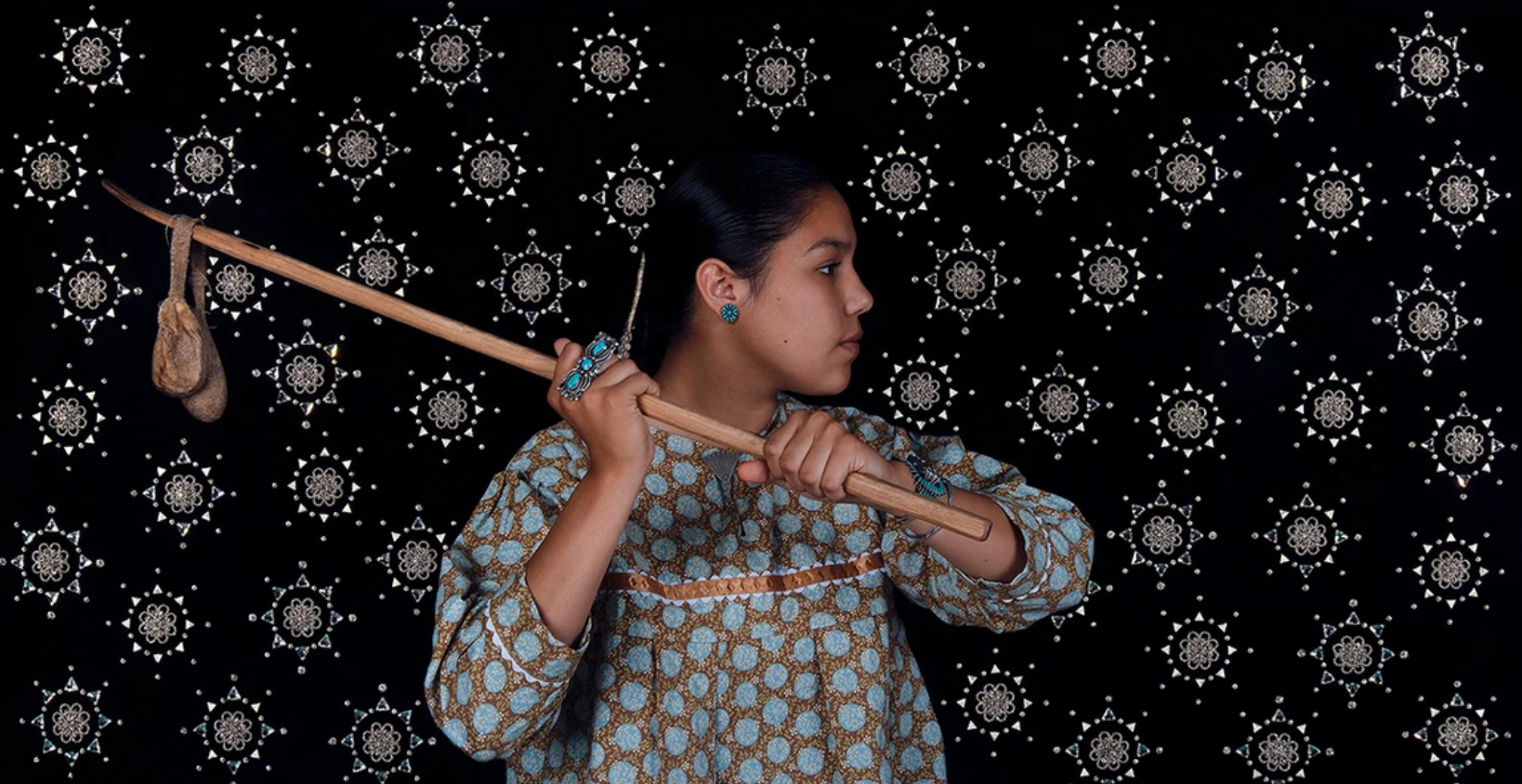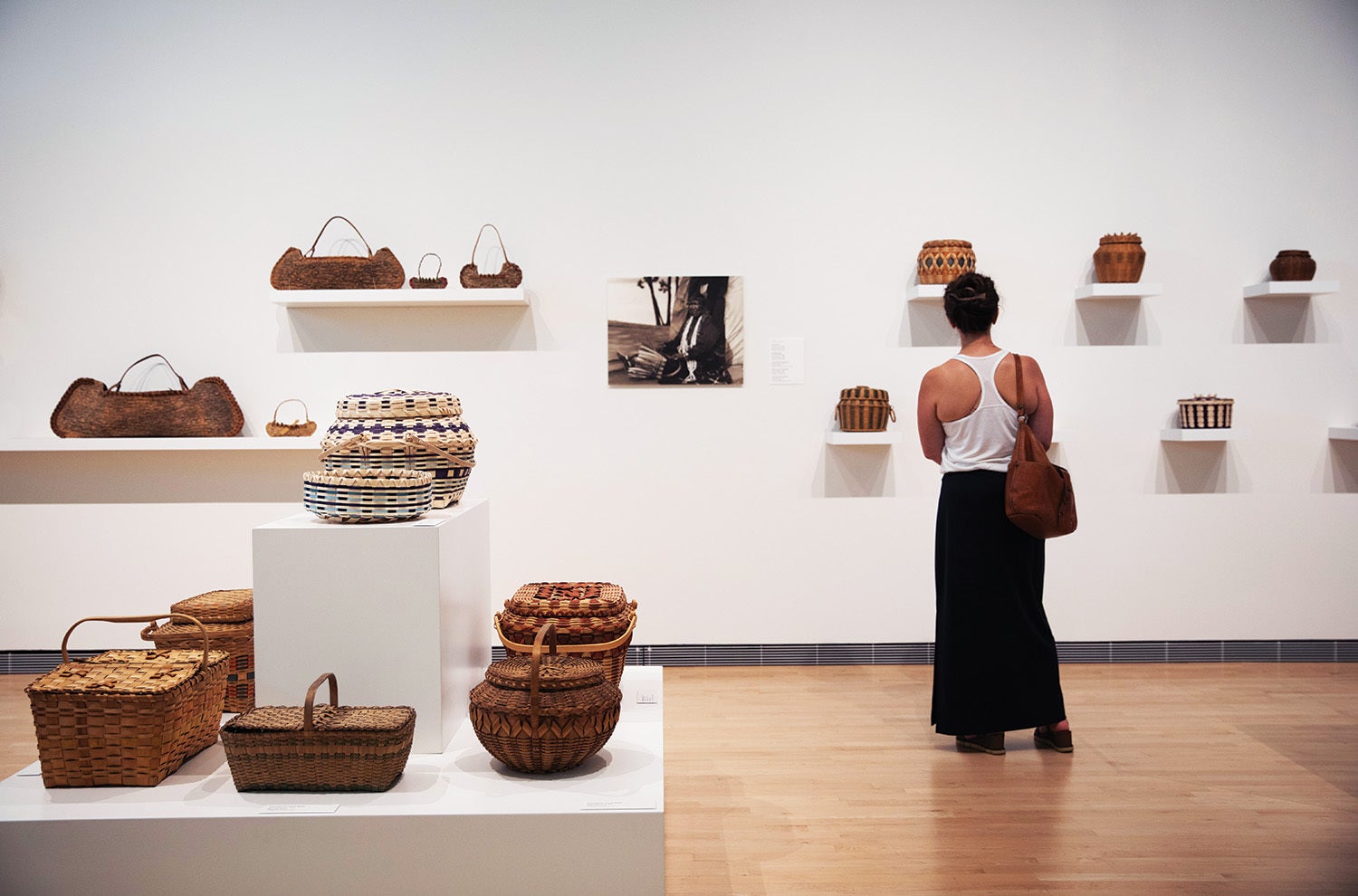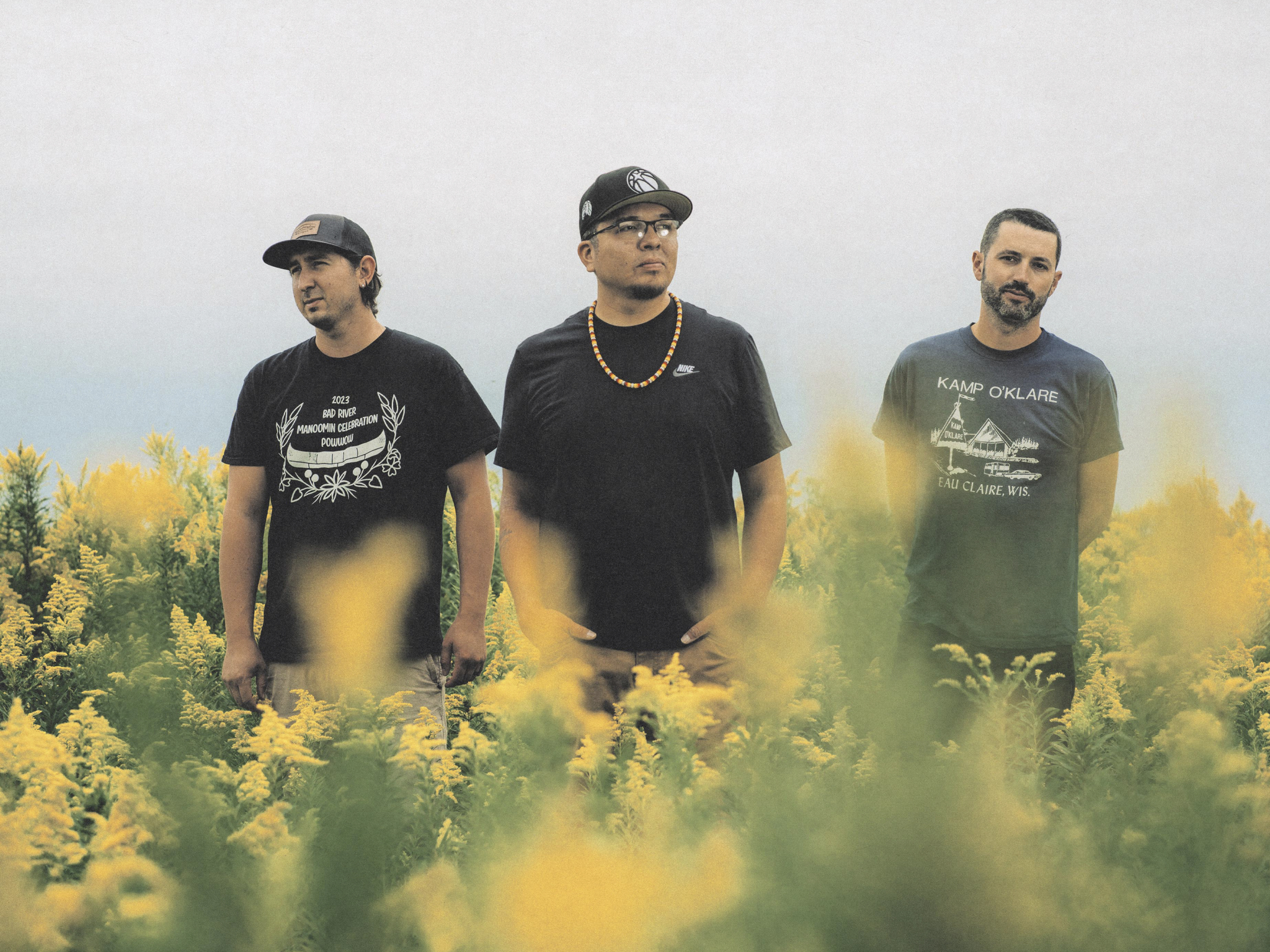This weekend, an estimated 10,000 visitors will flock to the Oneida Reservation for its annual powwow.
This year is the tribe’s 50th celebration in its current form. However, the tradition dates back almost 150 years, said Michelle Danforth Anderson, Oneida Nation marketing and tourism director.
“Oneidas from Canada would come down here, and they would bring songs and dance and have some celebrations,” Danforth Anderson said. “But it wasn’t until the 1970s when they moved (the powwow) to the Norbert Hill Center. And so that is actually what we are celebrating — the 50th time that we are actually doing a live, in-person powwow at the Norbert Hill Center in Oneida, Wisconsin.”
Stay informed on the latest news
Sign up for WPR’s email newsletter.
The three-day celebration will feature vendors selling crafts and food. But the Oneida Pow Wow is a contest powwow — meaning Indigenous dancers and drummers will compete for prize money. This year, the awards add up to $108,000.
Danforth Anderson and Oneida Nation Powwow Master of Ceremonies Ronnie D. Goodeagle Jr. joined WPR’s “Wisconsin Today” to give a preview of what to expect from this year’s event.
“In the history books, they always talk about war. These tribes versus those tribes. But they never talked about the times of peace. And during those times, those tribes would come together. And they would trade their ceremonies.”
Ronnie D. Goodeagle Jr.
The following was edited for clarity and brevity.
Rob Ferrett: Ronnie, how does a powwow bring a community together?
Ronnie D. Goodeagle Jr.: It’s a celebration of life. People can come from all walks of life — different tribes, different nations, Native and nonnative.
They have traditional powwows and contest powwows. So traditional powwows, there will be dancing and singing, but it’s not necessarily for a competition (with) prize money. And you can get more involved in the traditional doings.
In contest powwows, like the Oneida powwow, they have a lot of prize money. So you get the big names in the powwow world for singing, for drumming. … A drum will show up and they might have anywhere from eight to 12 or 13 singers. Then, they’ve got to be in tune. They got to know their songs and everybody has to be on point and in tune at the same time. Everything has to go just right because the singers are the main thing for a powwow. That drum. So without singers and without the drum, there wouldn’t be powwows, there wouldn’t be the celebration like that.
Throughout history, our people would trade ceremonies, would trade songs, dance styles. In the history books, they always talk about war. These tribes versus those tribes. But they never talked about the times of peace. And during those times, those tribes would come together. And they would trade their ceremonies, they would trade songs — or they would gift ceremonies, gift songs. And that was a way to bring back their friendship, bring back relations, bring back being a good human being to one another.
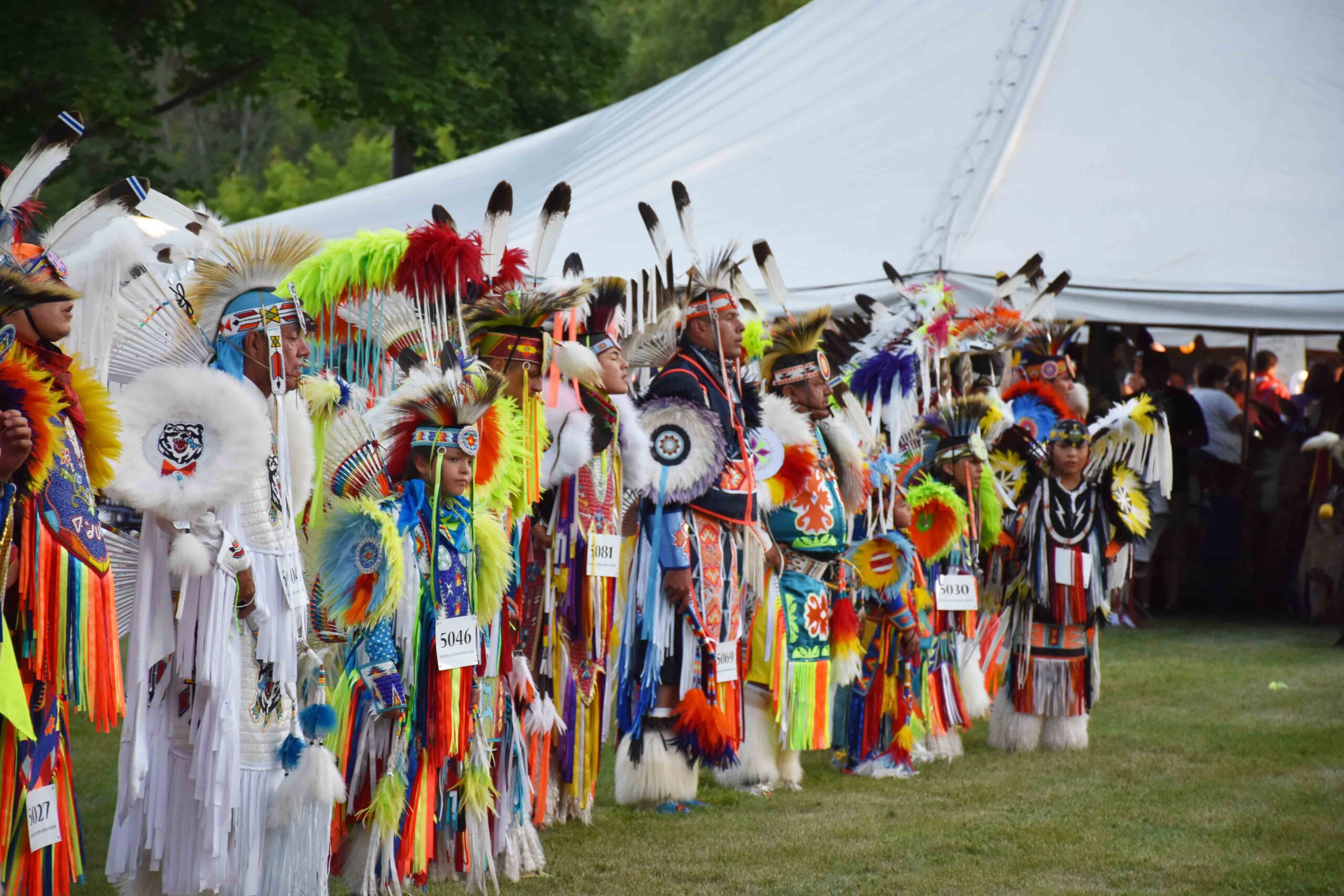
RF: Michelle, for somebody attending a powwow for the first time, what would you suggest they see and experience?
Michelle Danforth Anderson: Probably one of the coolest things to experience is a grand entry.
What happens with the grand entry is all of the dancers will end up in the arena. The veterans come in first — the men’s traditional smoke dancers, grass dancers. There’s all these different types of dancers. The women come in and they fill the arena. And it is just this amazing feeling and amazing sight to see all of these dancers, all the drums ultimately play as they’re going through this grand entry. That would be really one of those special times if you really want to capture and see and feel what a powwow is all about.
We have specials. We have different dance categories (competing) for prize money. There’s also food and craft vendors. There’s a whole array of different things to experience when you come to our grounds.
RF: Ronnie, I understand in addition to the dancing and drums, there is four-on-four traditional lacrosse at this event. I have never seen that in person. Can you describe that to us?
RG: Growing up in South Dakota, we didn’t really have the crossover there. And then as soon as I came over to Oneida, Wisconsin, in the Green Bay Area over the last 20 years, I got to watch it. The first time I actually really watched it was at a powwow. I was just there as a dancer. I was in awe to see it that way, in a traditional form.
As far as the four-on-four lacrosse tournament, it’s Ojibwe-style. I’m unfamiliar with the Ojibwe style. But different tribes, we have different sticks — the Iroquois stick is a little different from the Ojibwe sticks. And if you go down south to like Mississippi, the Choctaw … they call them stick games. It’s pretty much like the same thing but they’ll use two sticks. So, different tribes had various ways that they played the game and that they conducted it, but it’s all pretty much similar.
Wisconsin Public Radio, © Copyright 2025, Board of Regents of the University of Wisconsin System and Wisconsin Educational Communications Board.
